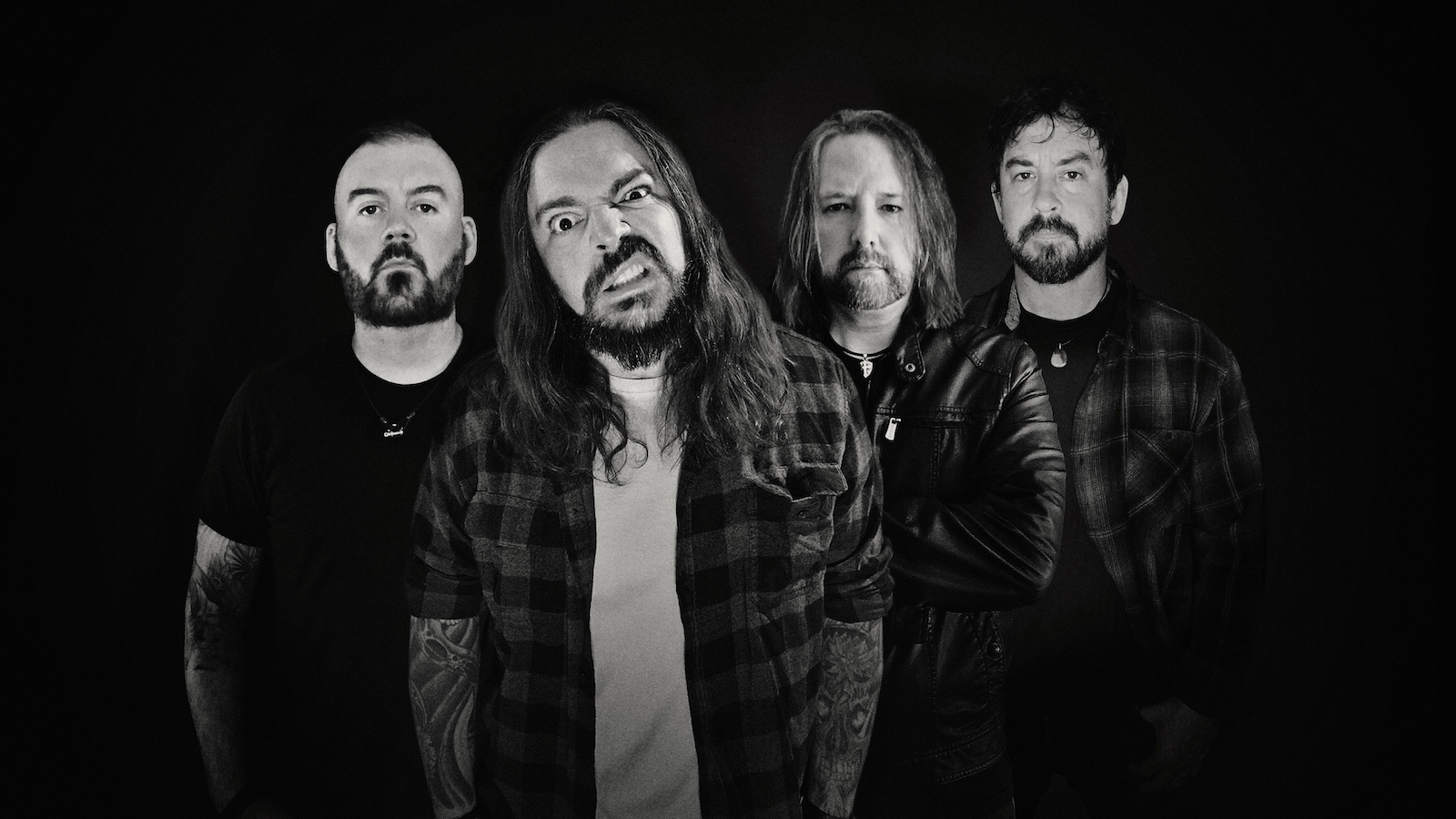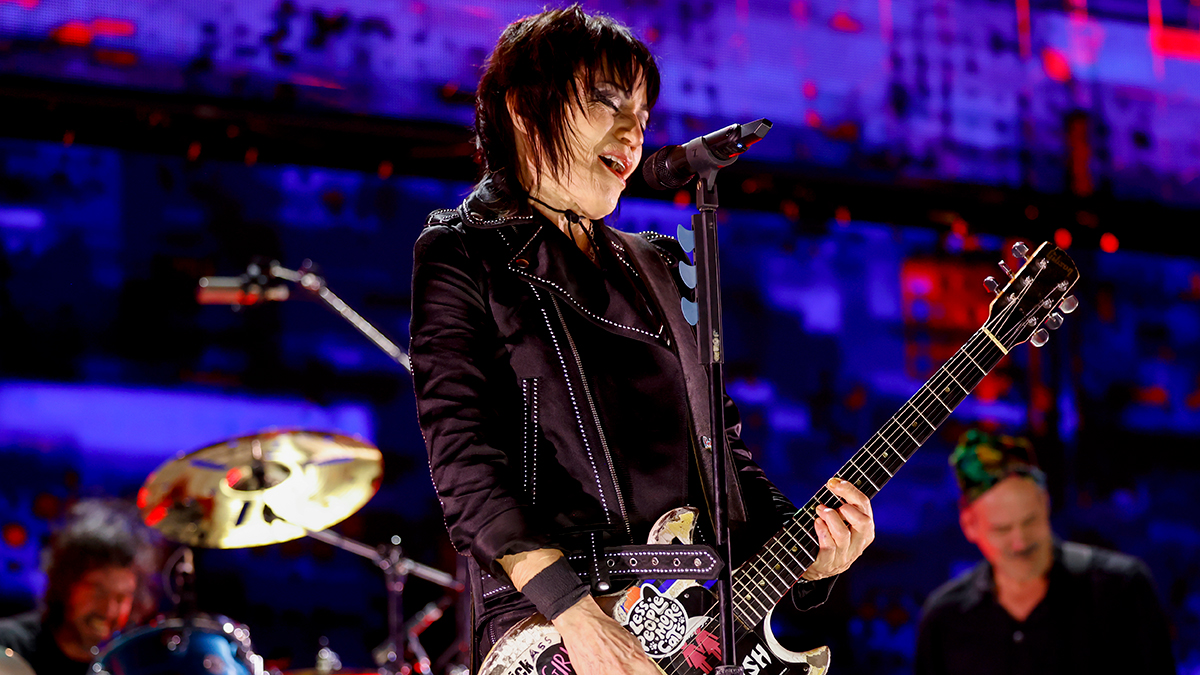Seether: "The only pressure I felt was that I needed to exceed the expectations we laid down with the last album"
2020 has put up one hell of a fight thus far, but for the South African nu-metal maniacs in Seether, it’s just another year in the life – one they’re ready to show what’s what

All the latest guitar news, interviews, lessons, reviews, deals and more, direct to your inbox!
You are now subscribed
Your newsletter sign-up was successful
Though inspired by the sounds of the ‘90s, the South African hard-rockers in Seether have delivered an album notably well-suited for 2020 in Si Vis Pacem, Para Bellum (translating from Latin to If You Want Peace, Prepare For War).
As frontman Shaun Morgan agrees with palpable enthusiasm, the 50-minute monolith marks a major turning point for the band: it’s not only their sharpest and most meticulous effort to date – that much due to Morgan returning to the producer’s chair after cutting his teeth on 2017’s Poison The Parish – but it’s also their most authentic, Morgan tapping deep into his inner turmoil to brew an artistic statement as bleak as it is bold.
In addition, Si Vis Pacem, Para Bellum is the first Seether album to feature Corey Lowery on lead guitars. With his frenetic frettage, Lowery brings a deft edge of heavy metal to the fold – but he also helped out behind the scenes, making the team behind the desk the strongest Seether en masse have ever had to work with.
As the band gears up to conquer the world virtually via livestreamed performance, we had a chat with Morgan about why taking over the reins as producer was the best decision he’s made in Seether thus far, why Lowery was the perfect man for the job left open by Bryan Wickman, and why you should never fill your studio with expensive gear if your intentions are to force it all on people.
So this is the second Seether album that you’ve produced yourself, after Poison The Parish in 2017. Did going into this record feel easier, or more exciting, having already dipped your feet into the process?
Yeah, I was very excited about it. The first one was terrifying, because the onus was on me to deliver [laughs]. I opted to take on that responsibility and that risk myself, and I’m glad I did, because I’ve finally learned, after so many years, to trust my instincts.
We’ve worked with great producers in the past, and we’ve worked with terrible producers in the past. The best producer we ever had was Brendan O’Brien – I learned everything I needed to know from him. He gave me confidence in myself and my songwriting, and because of that, I felt like I could get to the point where I’d be able to do a record without anybody’s help. And to be quite honest, the last two albums, Poison The Parish and now this one, they’re my favourite sounding Seether albums – because I didn’t have a producer trying to inject their own sound into it.
We worked with this one guy, Howard Benson: he’s a producer, fine, I don’t love or hate the guy – but he and his engineer, they would buy up a bunch of guitars and amps, and because they spent all their money on those guitars and amps, they just wanted to use them all the time. So you’d come into the studio and they’d say, “Okay, this will be your distorted guitar for the album, this will be your clean guitar, and these are the amps we’ll use.” And so ultimately, they’re just creating albums where it’s different bands all sounding the same – which doesn’t make any sense to me, y’know? So I learned from Howard not to ever do that.
All the latest guitar news, interviews, lessons, reviews, deals and more, direct to your inbox!
But yeah, it’s always exciting to steer the ship! It was especially fun this time around because Corey had just joined the band, and he assistant-engineered the record alongside Matt Hyde, who we did the last one with as well. And we made a really great team between the three of us. It went really smoothly. I mean, we did 21 entire tracks – not mixed, but completely edited and put together with all the band guys – in 17 days. That’s a rate of productivity we haven’t seen in quite some time.
On the first album we ever did, the producer dragged us out into a three-month process to do 12 songs, which I thought was ridiculous; we had to record “Fine Again” from the ground up four or five times, because he was never in the studio to do it properly. So being at the helm of it all myself is quite thrilling. Last time it was nerve wracking and I was terrified, but this time I actually felt pretty good; I feel like the songs are even stronger than they were last time, to be honest.
I guess the only pressure I felt this time was that I needed to exceed the expectations we laid down with the last one, and I needed to leap right over the bar I set on that record. And I think I did it! I can confidently say that this is the best album I’ve done – certainly the better of the two that I’ve produced.
What made Corey the best choice to take the reins on lead guitar?
Well, he came out on tour with us – that was the tour we did with Nickelback in the UK. Then we did South Africa, then Australia and New Zealand, and then we flew back to the UK – and that was all in the span of four weeks. We did all these countries and all these time zones, and we managed to get through it in one piece without killing each other. So we knew right away that he was up for the challenge.
But I’ve known him for 15, 16 years now. He was in a band called Dark New Day, and we were on a tour with them and a band called Crossfade way back in the day – it was probably the most fun I’ve ever had in my life. At the end of that tour, a lot of us were crying over the fact it was ending, because we had become such good friends between all three bands. It was a brotherhood. It was an absolute circus, but it was a brotherhood.
So I’ve known Corey since then, but the thing is, he never told me he played guitar. And that’s the interesting thing about it! Because I’ve always just known him as a bassist – he’d only ever been a bassist in all the bands he’s been in since I met him. So every time I asked him, “Hey man, do you know a guitarist?” He would say, “Yeah, yeah,” and would help me find somebody else, never telling me that he could play the damn guitar. And then he finally did, and he came out and played guitar with us, and I was like, “Goddammit man, this is who we’ve needed forever!”
He brings a lot to the table with his personality alone – he’s a really energetic and positive guy – and he brings a lot of expertise with him as well. He’s a great Pro Tools engineer. And he’s just one of those guys that you like to be around, y’know? He will find a reason to be happy when there certainly doesn’t seem to be one.
What was the studio dynamic like between the two of you as guitarists? Were you throwing many ideas back and forth, or experimenting with different parts together?
Well, I wrote all the stuff. I think the understanding with these guys is just that Seether is my thing, as far as the songwriting goes. There have been times where we’ve written albums together – we’ve been in a room and we’ve jammed and written stuff as a unit – and there’s other times when I’m doing it and they just kind of let me run with it, because y’know, Seether is basically everything that I hear in my head.
So what Corey was instrumental with – no pun intended – was that he came to the studio and he learned all the guitar parts, so that I didn’t have to track all the guitars like I normally do. Usually I’m the only guitarist, so I have to play the rhythms, the overdubs and the solos, the re-dos… And y’know, it’s not a chore, but it takes up time. So what’s nice about him knowing the parts was that could record them all interchangeably. One day I’d say, “Okay, well you play this rhythm part, I’ll play the solo, you do the overdub, and then…” And then the other day we’d do the opposite.
It was cool to have that freedom and flexibility – and the fact that I was able to trust him was amazing. I’ve had guitarists before where they were great players, but they didn’t have the feel that I was looking for. And you almost don’t want them to ruin a moment that you’re got in your head, because the way they bend their notes was just not how you’d imagine it. So Corey and I are quite simpatico in that sense, where we both play quite similarly.

Ellie Robinson is an Australian writer, editor and dog enthusiast with a keen ear for pop-rock and a keen tongue for actual Pop Rocks. Her bylines include music rag staples like NME, BLUNT, Mixdown and, of course, Australian Guitar (where she also serves as Editor-at-Large), but also less expected fare like TV Soap and Snowboarding Australia. Her go-to guitar is a Fender Player Tele, which, controversially, she only picked up after she'd joined the team at Australian Guitar. Before then, Ellie was a keyboardist – thankfully, the AG crew helped her see the light…
